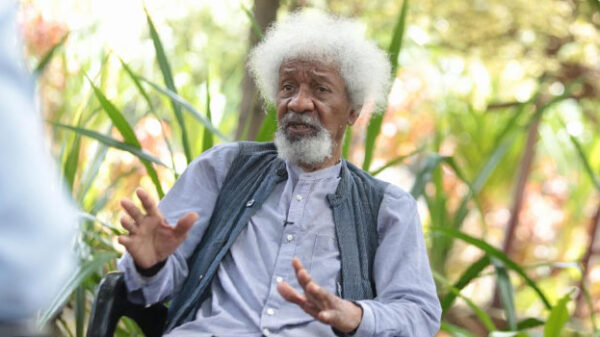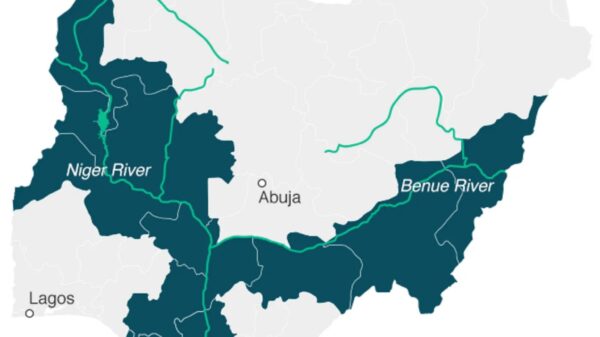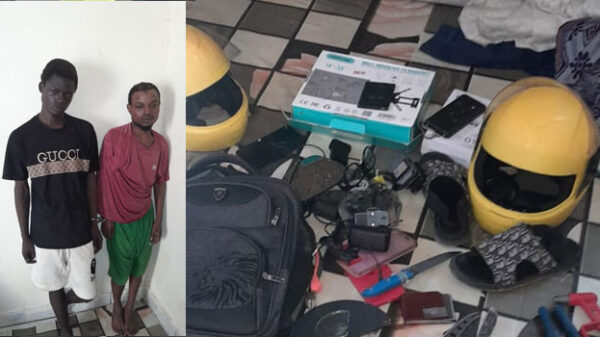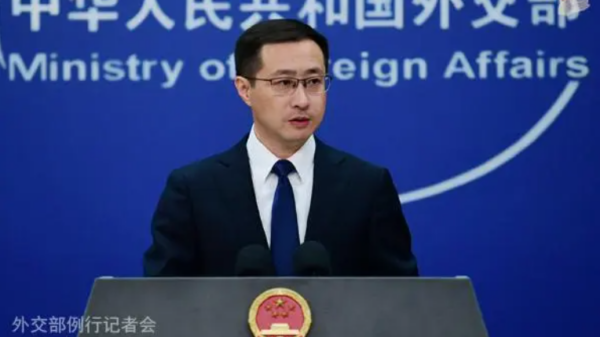NAIROBI, Kenya, Sep 3 – Renowned Kenyan conservationist, Dr Richard Leakey has inaugurated the display of the WildlifeDirect lion statue that will be creating public awareness about poisoning of lions by cattle herders using Furadan.
The lion statue, which is part of the Pride of Kenya campaign to create awareness about the status and to raise funds for conservation of Kenya’s remaining 2,100 lions will be on public display at Yaya Centre in Nairobi.
On Tuesday WildlifeDirect joined the Born Free Foundation in the official launch of the Pride of Kenya campaign at the Nairobi National Park. Integrated in the campaign to save the last lions of Kenya is the inauguration of WildlifeDirect’s call to have all carbofurans – especially Furadan a lethal agricultural pesticide that is behind the death of 75 lions in the last 4 years – banned in Kenya.
With the life-sized lion statue christened The Androcles Lion as the centrepiece of their campaign, WildlifeDirect seeks to rally support from prominent Kenyans and the general public to have the deadly carbofuran class of pesticides banned from the Kenyan market by the Kenyan Parliament.
The Androcles Lion which is painted Fuchsia, the prominent colour on the retail packaging of the most used carbofuran in Kenya – Furadan – and with chains around it denoting bondage by these poisons, seeks to communicate the threat that carbofurans are posing to the survival of this charismatic species.
Prominent personalities such as Dr Leakey – who became the first person to endorse the campaign – UNEP Director Achim Steiner, Nobel Laureate Wangari Maathai among others, have been invited to show their support for the push to have Furadan banned in Kenya by inscribing a signed message supporting the ban on the body of the lion.
The objective is to initiate public debate and support of the proposed ban so that Kenya’s Parliament finally discusses the motion and eventually pass a law that makes it illegal to import, manufacture, repackage or sell this killer pesticide and anything else in its class.
Kenya’s lion population is declining at an alarming pace and climate change, habitat destruction and conflict with humans have been the key drivers for this precipitous fall in numbers.
On August 17, the Kenya Wildlife Service (KWS) announced that Kenya’s lion population had been declining by an average 100 animals per year in the last seven years and now stands at a little over 2,000.
In the 1970s there were about 30,000 lions in Kenya. Given the current decline rate, lions will become extinct in Kenya in just two decades. At the time, KWS spokesman Paul Udoto told the media that "communities are the largest threat to the lions and other cats."
It is through conservationists blogs hosted by WildlifeDirect that the widespread use of Furadan by cattle herders for retaliatory poisoning of lions suspected of killing livestock first came to the limelight.
With increasing reports of lion and other predators as well as birds of prey and scavengers being poisoned using Furadan, WildlifeDirect convened, in 2007, a meeting to bring together affected conservationists and Furadan importation firms in order to chart a way forward in addressing this situation.
The meeting resolved that a total ban on Furadan would be the best way to eliminate herders’ access to this lethal poison and thus reduce poisoning of lions. The Stop Wildlife Poisoning campaign was thus launched.
On March 29 this year, American broadcaster, CBS, aired a documentary showing the devastating effect that Furadan was having on Kenya’s lions. Following this documentary, and the information that WildlifeDirect had provided the Member of Parliament for Naivasha, John Mututho – who took the issue to parliament – the question of banning Furadan was discussed in Parliament.
Parliamentary recommendation was that a committee be formed to craft a notice that would, if integrated into law, make it illegal to import Furadan and other carbofurans into Kenya. The Honourable Minister for Wildlife and Natural Resources, Dr Noah Wekesa, instructed that that committee be formed.
With the distinctively pink lion with a mane covered with replica Kenyan currency notes, representing the greed that is driving the sales of a poison that has already been banned in the US and Europe WildlifeDirect will continue to drum up support to the member for Naivasha and all those parliamentarians who support banning the substance.
WildlifeDirect’s quest is to end the poisoning of lions by herders using Furadan, and that is the message that the Androcles Lion will be sending as it goes on public display at Yaya Centre.








































